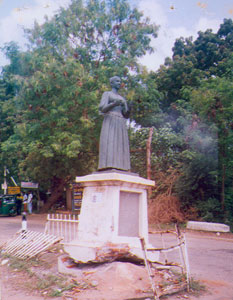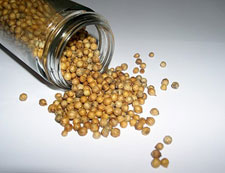The 2011 Budget is totally inconsistent with the Mahinda Chinthanaya Idiri Dakma, launched during the Presidential election campaign.
I remember the President saying elderly citizens would get a monthly pension of Rs. 3,000 and public servants a salary raise of Rs. 2,500. He promised duty-free concessions for the purchase of vehicles for public servants, and reduced taxes on consumer food items to bring down the cost of living. His election manifesto also promised reduced electricity tariffs and water bills for domestic consumers.
But none of these promises to give relief to the poor materialised in the Presdident’s 2011 Budget. This is a great disappointment to the poor people of Sri Lanka.
However, plenty of concessions were granted to the elite class. Income tax was reduced from 35 per cent to 28 per cent; the excise tax and VAT were taken off imported vehicles and electrical appliances; the bank debit tax was abolished, and the VAT on financial services was cut from 20 per cent to 12 per cent.
The 2011 Budget benefits the affluent, but not the poor.
The government keeps boasting about the Mahinda Chinthanaya but acts contrary to Mahinda Chinthanaya. We appreciate the government’s development strategy. But the majority of the people do not benefit.
State expenditure has increased hugely with a jumbo cabinet of 59 Ministers and 31 Deputy Ministers. During the election campaign we were told the next Cabinet would comprise no more than 35 Ministers; instead, another 24 more Ministers have been added on.
The United People’s Freedom Alliance (UPFA) accused the United National Party (UNP) regime of being capitalist, but the UPFA is acting in a purely capitalistic way.
The President and those in power should remember that they have to go before the people again, if they expect to win the forthcoming local government elections.
Yesmin Zahira,
Hingula.
Out with racial politics
It is our experience that the so-called minority political parties indulge in racial politics. They hang on to the national political party at the hustings, and if that party wins the election, they demand ministerial, deputy ministerial and state corporations posts for their party members, elected or defeated.
If the other national party wins, they cross over to that party and do the same.
There are minority political parties that have held ministerial posts, etc. by joining the political party that wins the election. Nowhere in the world do you find such shameless and opportunistic political behaviour, which amounts to unprincipled politics going behind racialism. That brand of politics should end.
The two national political parties – the SLFP and the UNP – should have nothing to do with racial political parties and should not align with them at the hustings, but go all out to win over the minorities, as happened in the good old days. That would bring an end to racial politics. Racial political parties should be banned.
Upali S. Jayasekera,
Colombo 4.
Homage to the poet Gajaman Nona
Gajaman Nona, or Mrs. Dona Isabella Cornelia Gradiarachchi
Gajaman Nona, poetess and
Ravishing beauty, posed as a man
So she could study under a monk;
In olden days monks were forbidden
To teach, work or talk with
Women. … Cunningly,
She overcame this obstacle.
Many a man craved her hand;
At 22, she consented to marriage, and
Wedded the chieftain Gardiarachchi,
Who, sadly, died a few years later.
There are romantic tales of escapades –
Her friendship with D’ Oyly and Elapatha;
Understand her bereaved state –
Struck by poverty, she was desperate.
She died on 15 December, 1814,
Her legacy – immortal poetry;
As descendants of Gardiarachchi,
We pay homage to our distinguished
Ancestor – Gajaman Nona.
In the heavens above, she is singing
To the Devas, keeping them happy,
Just as she keeps us happy on earth –
An art she plies so well.
Don Sirimal Gardiarachchi,
Boralesgamuwa
Private hospitals
should be investigated
I recently channelled a consultant at a leading private hospital in Colombo 5 and obtained an appointment. A day or two later, I realised I had a prior engagement that could not be avoided. I postponed my appointment at the hospital by seven days. The reason it was seven days is because the consultant visits the hospital only once a week.
To my great surprise, the channelling counter demanded an additional Rs. 300 for changing the date. They said they could accommodate me without the extra charge, but would have to put me last on the list of patients for that day.
We hear endless complaints about the way private hospitals operate. No wonder these organisations boast huge profits every year.
It is high time the Ministry of Health investigated these private “operators”.
R. de Silva,
Dehiwala
Coriander for fever, papaya for wounds
In this modern age, we tend to dismiss the tried-and-tested traditional medical treatments that are based on plants and herbs. Coriander, for example, can help relieve headache, fever and nasal congestion.
When we were medical students, Professor R. P. Jayawardene, an eminent physician at the National Hospital, Colombo, repeatedly lectured us on the wonderful efficacy of coriander.
For the benefit of readers, I offer some age-old home remedies for simple ailments:
- For sleeplessness (insomnia): A little boiled rice mixed with pure kitul treacle and taken at bedtime;
- For pains in the joints: 4 teaspoons of cow ghee mixed with half a cup of coffee and sugar;
- For high-blood pressure: 100 grams of jak-leaf stems boiled in 4 cups of water and reduced to half a cup of fluid – to be consumed daily, in the morning;
- For deep wounds that refuse to heal: An application of papaw paste (use ripe papaya);
- For joint pains: Eat plenty of peanuts; *
- For boils and abscesses: Raw garlic mixed with cow ghee;
- For high cholesterol: Goraka (garcinia quaesita Pierre), karapincha (curry leaves), garlic and cummin seed boiled into a broth; can be consumed with rice;
- For colic, especially in children: Ginger juice with sugar;
- Gastritis: Snake gourd (the vegetable “pathola”) taken daily in curry form for three months – a guaranteed cure commonly used in India.
Dr. D. Malwatte Mohotti |




